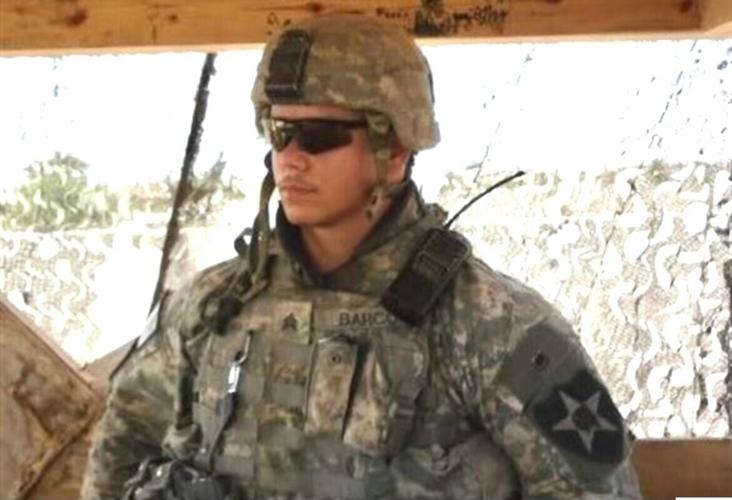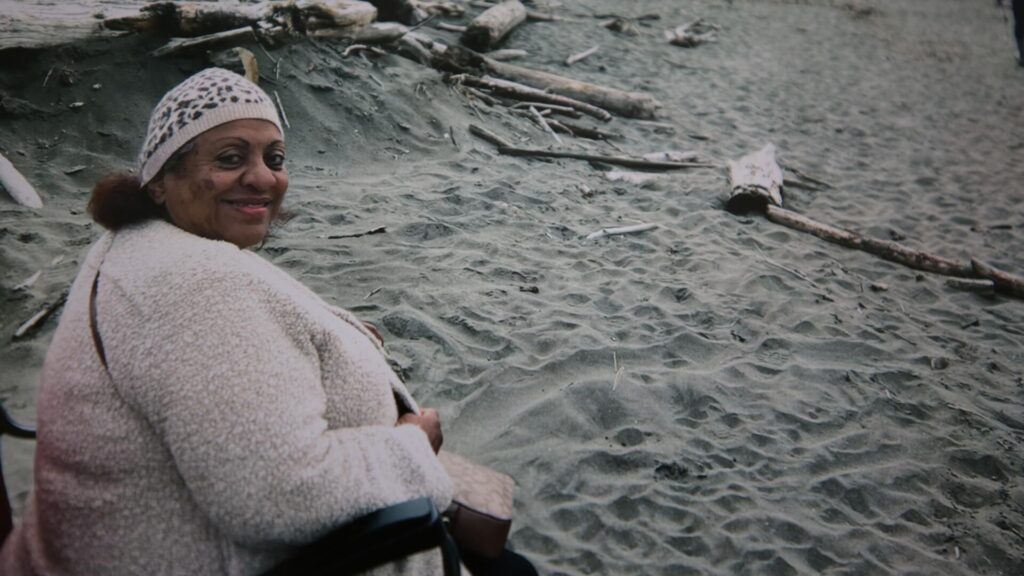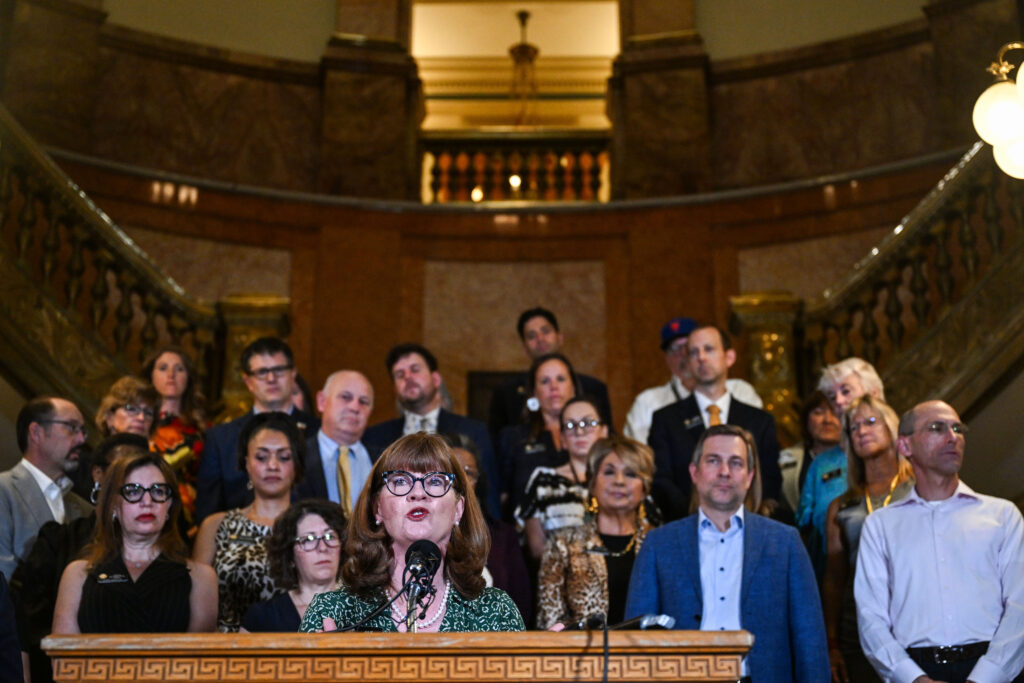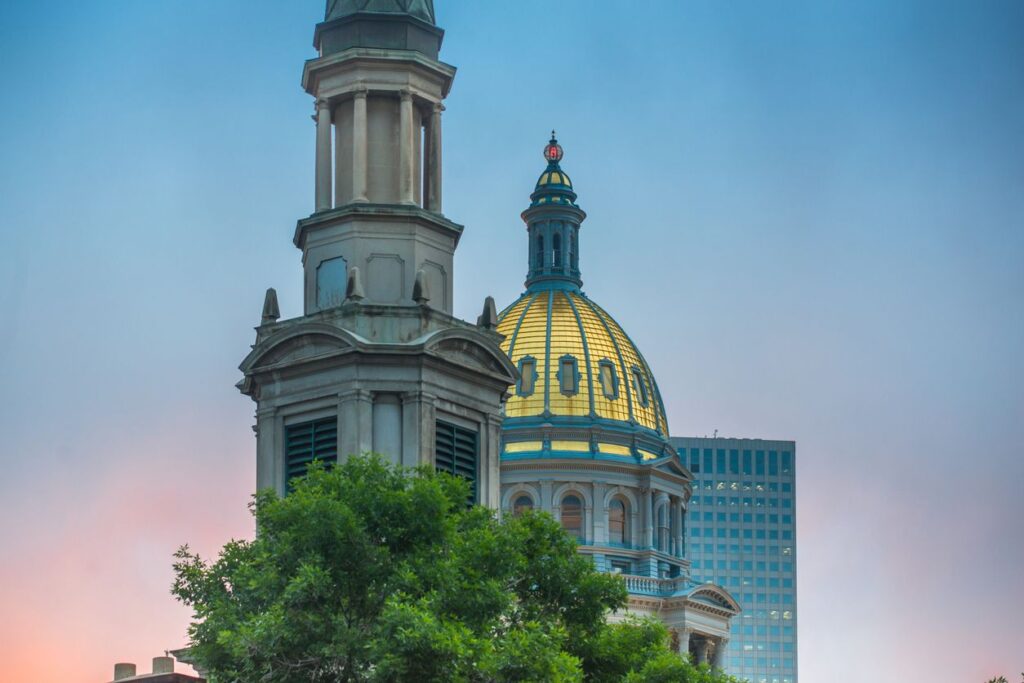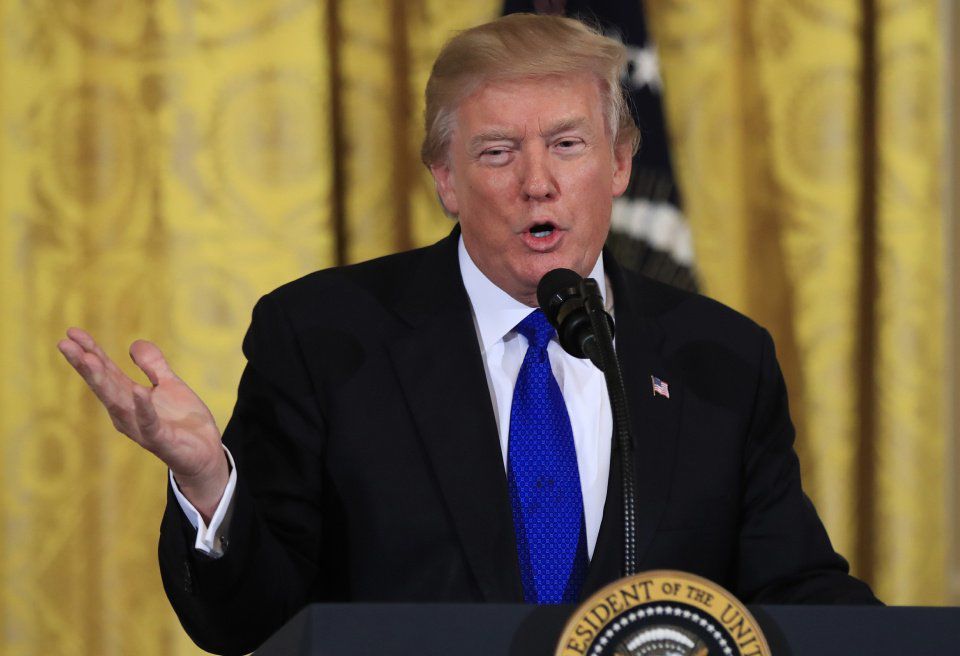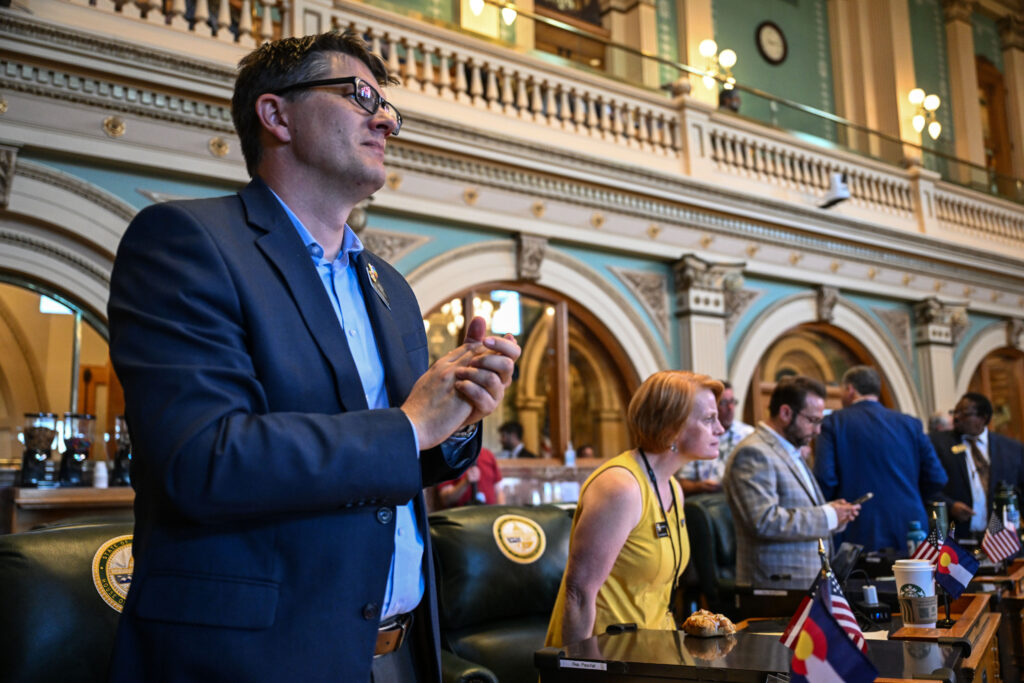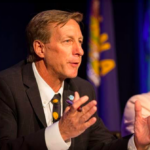The Fray’s front man joins governor to promote music in Colorado schools
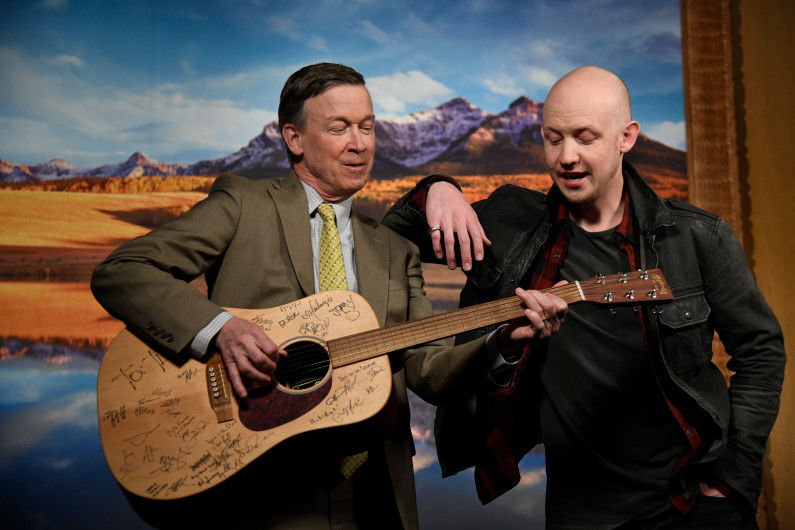
Students at Clyde Miller P-8 School in Aurora strummed along on ukuleles as Gov. John Hickenlooper, on a banjo, and Isaac Slade, the frontman for the Colorado-born band The Fray, played guitar and led them in “Will the Circle Go Unbroken.”
The school is one of five sharing $450,000 raised by musicians and other benefactors to put music within reach of Colorado school kids who have seen years of budget cuts to arts programs.
The collective, launched by Hickenlooper and his musical friends in 2016 as Take Note Colorado. This week it launched its a website called Music Match, for teachers and school administrators to post what they need and hopefully find donors.
Besides Aurora Public Schools, the others receiving “seed funding” are:
The launch coincided – coincidentally – as Sens. Mike Merrifield, a Democrat Colorado Springs, and Chris Holbert, a Republican from Parker, build support for Senate Bill 8 to award an optional accreditation point to encourage schools to offer arts programs.
The criticism against it is that small schools and rural schools might not be able to afford what’s easily accessible to larger, urban schools. The bill has its first hearing before the Senate Education Committee Wednesday afternoon.
Take Note started in 2016 when Hickenlooper met with Slade, and philanthropists Libby Anschutz of The Anschutz Foundation and Pat Stryker and Cheryl Zimlich of Bohemian Foundation. The founders recruited other civic-minded music leaders, including Chuck Morris of AEG Presents and Chris Tetzeli of 7S Management.
The program got a big boost last May with a benefit concert at the 1STBANK Center in Broomfield. Besides The Fray, the lineup included Nathaniel Rateliff & The Night Sweats, OneRepublic, Todd Park Mohr & Jeremy Lawton of Big Head Todd & The Monsters, Bill Nershi of the String Cheese Incident and Tracksuit Wedding.
“A statewide initiative, Take Note Colorado selected these districts for their diverse geographic locations and size to gain a better understanding about music offerings in schools, in rural and urban areas and small and large districts,” according to the governor’s office.



